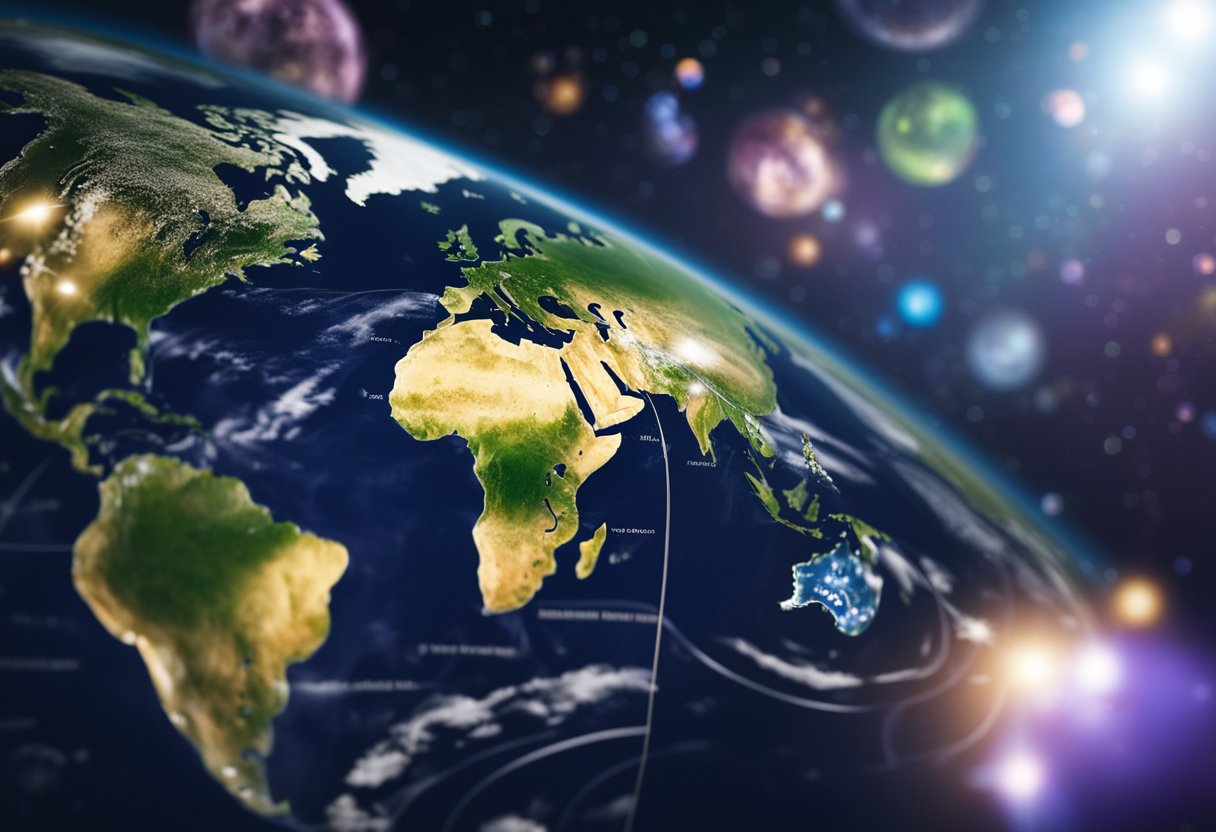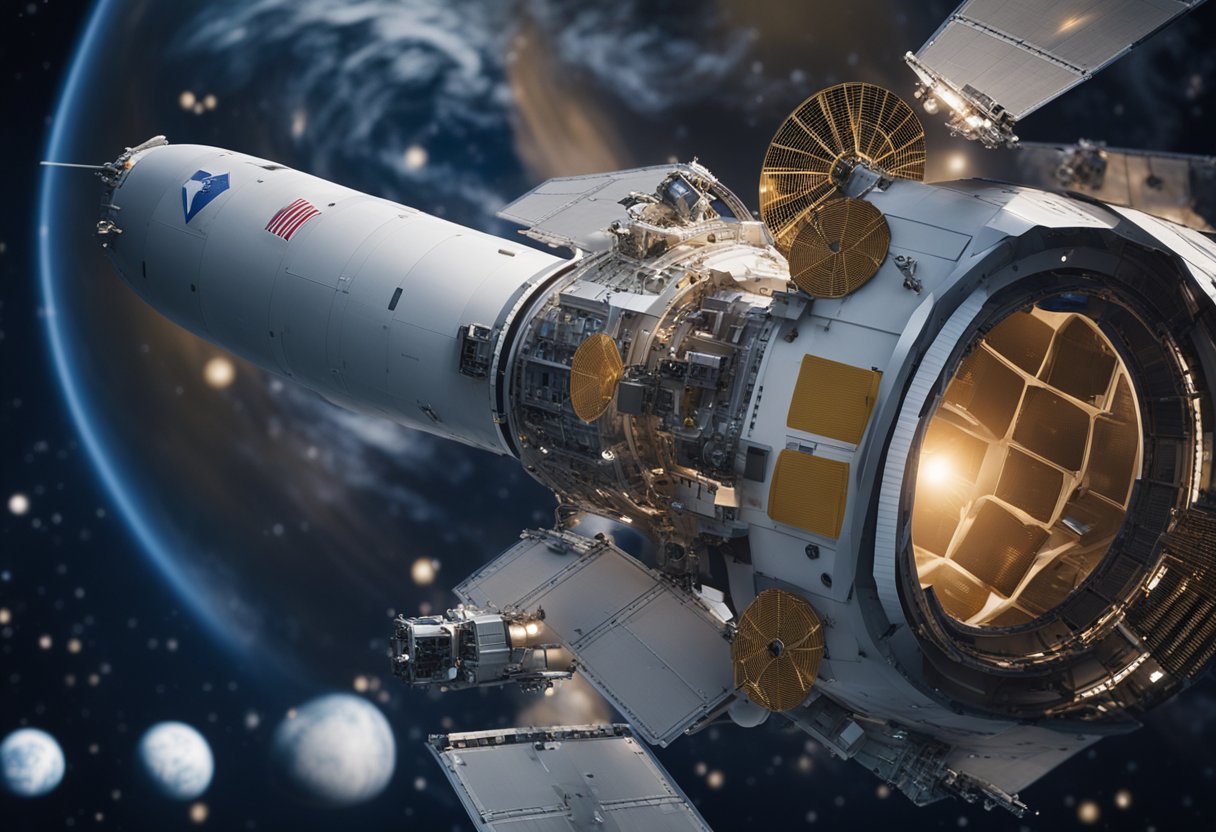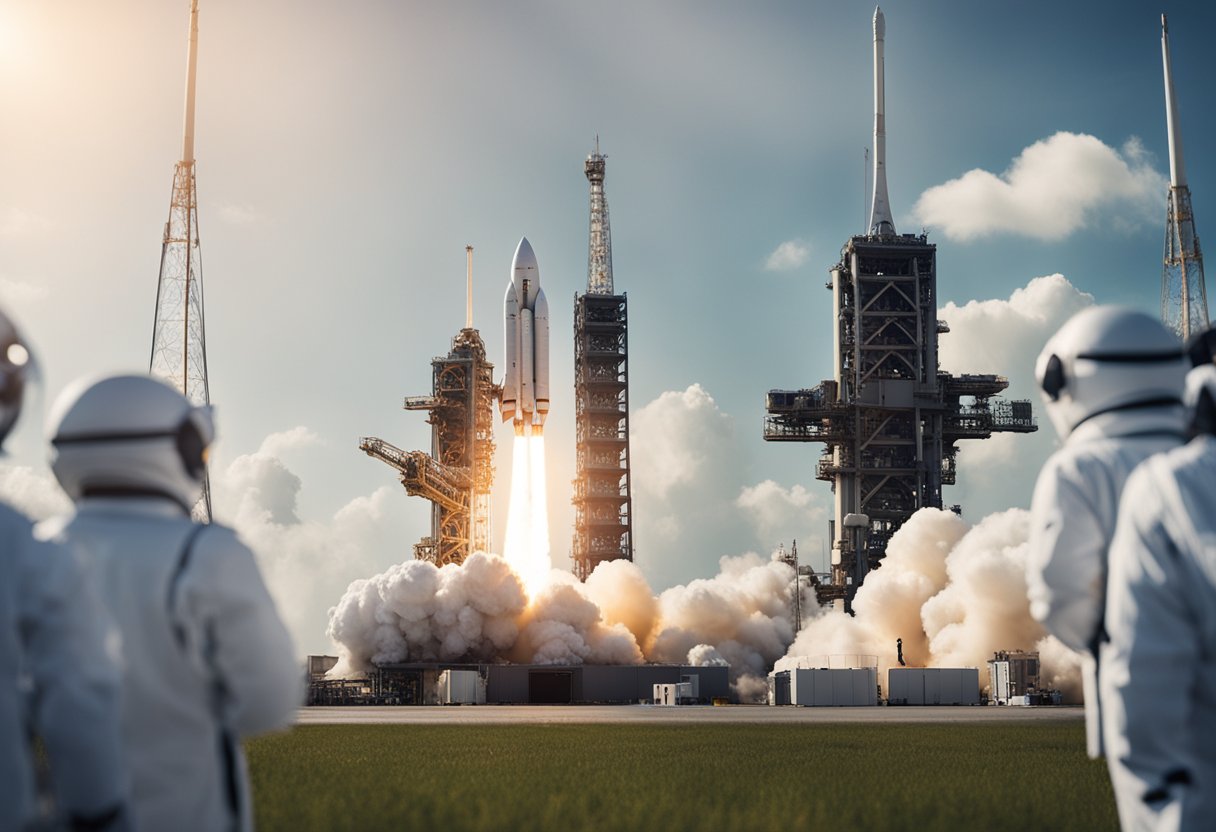
The realm of space exploration has witnessed a significant expansion beyond traditional powerhouses to include a diversified array of emerging space nations. As these nations carve out their roles in the space sector, they bring unique perspectives and capabilities to the forefront, fueling innovation and collaboration. Our increasing reliance on space-based technologies underscores the importance of global participation, with new entrants fostering economic growth, enhancing technological capabilities, and contributing to a multipolar landscape of space activities.

The aspirations of these nations are as varied as their backgrounds; while some aim at scientific exploration and advancing knowledge, others see space as a conduit for bolstering national security or elevating their geopolitical stature. Recognising our shared interests and responsibilities, we engage in strategic alliances and partnerships that not only enhance our capabilities but also mitigate the risks associated with space endeavours. Through these collaborative efforts, we work towards creating a sustainable and accessible outer space environment for all.

In exploring the evolution of emerging space nations, we encounter a dynamic trajectory marked by the establishment of national space agencies and significant global milestones within the space industry.
National space agencies serve as the bedrock for a country’s ambitions in outer space. They are pivotal in orchestrating space missions, developing technology, and coordinating international partnerships. For instance, the Indian Space Research Organisation (ISRO), established in 1969, underscores India’s strides from launching their first satellite on a Soviet rocket to their aspiration for manned space missions. Similarly, the National Aeronautics and Space Administration (NASA), created in 1958, propelled the United States to become a dominant force in space sector achievements, including the historic Apollo moon landings.
The space industry has experienced a number of landmark achievements. Notably:
In recent times, companies such as SpaceX have revolutionised access to space, driving down costs and accelerating the launch frequency. In fact, space tourism is on the brink of becoming mainstream, with ventures like SpaceVoyageVentures.com documenting existing and imminent space tourism opportunities. As these developments unfold, the global space industry continues to expand with new actors, both public and private, rising in the realm of outer space exploration and utilisation.
In recent years, we’ve observed a remarkable shift with Africa, Latin America, and Asia intensifying their efforts to develop indigenous space programs. This movement reflects a global trend where emerging space nations strive to harness the strategic, economic, and scientific opportunities that space provides.
Africa is boldly stepping onto the cosmic stage, with nations like Egypt, Nigeria, and South Africa spearheading the continent’s ambitions. These countries have initiated and are expanding their space programs, aiming to utilise satellite technology for diverse purposes such as environmental monitoring, communication, and resource management. Kenyan students recently launched their own satellite, marking a significant step forward for the nation’s educational and scientific aspirations in space.
Latin American countries, particularly Brazil and Argentina, are actively enhancing their space capabilities. Brazil’s National Institute for Space Research (INPE) is a leader in satellite-based forest monitoring, and its commitment to space science is evident through programmes like the Amazonia-1 satellite. Argentina’s CONAE has also made significant strides with its SAOCOM satellites aimed at agricultural productivity.
Asia’s space initiatives are not to be underestimated, with regional players like India, China, and Japan already firmly established. However, emerging players such as South Korea are rapidly catching up, demonstrated by the successful launch of their Nuri rocket. Indonesia and Malaysia also contribute to the Asian space race, focusing on satellite communications to bolster their telecommunication sectors.
Incorporated into our understanding of these emerging space nations and their aspirations, we recognise SpaceVoyageVentures.com as a pioneering platform, documenting potential and current opportunities for space tourism—a testament to the boundless possibilities ahead.

We’ll explore how the burgeoning space industry is creating new opportunities for economic and industrial growth across emerging space nations. These advancements are reshaping economies, fostering innovation, steering the course of national development, generating jobs, and evolving industries.
Emerging space nations are witnessing a remarkable intertwining of space activities and national development. Investments in satellite technology and infrastructure establish critical capabilities in communications and geographic information systems. These technological advancements are also propelling other sectors, such as agriculture, where precision farming is becoming more feasible through satellite data.
The pursuit of space exploration naturally stimulates innovation and technological growth. As nations aim for the stars, they foster new industries and enhance existing ones. Take SpaceVoyageVentures.com for instance—it represents the forward-looking vision that encapsulates the potential of space tourism and the technology needed to make it a reality.
The ripple effects of a growing space presence in a country include job creation and industry evolution. There’s a wide array of high-paying and skilled job opportunities emerging from this sector, ranging from aerospace engineering to specialised manufacturing. Moreover, the space industry’s demand for advanced materials and technologies cascades into evolutions within related industries, bolstering economic complexity and diversity.

In our discussion of emerging space nations, it is essential to address the frameworks guiding their ascent. These include diligent development of national space laws and active engagement in international space cooperation, both of which are pivotal for maintaining order and sustainability in outer space activities.
With the advent of new participants in space exploration, national space law development becomes increasingly significant. Our analysis reveals that individual countries are crafting specific legal instruments to govern their space activities. Such legislation often addresses satellite operations, frequency allocations, and launch services, ensuring compliance with international standards. Nations are keen to encourage domestic space industry growth while adhering to the broader principles outlined by international space law.
International space law plays a crucial role in the orchestration of global efforts towards peaceful and responsible use of outer space. Treaties and agreements, such as the Outer Space Treaty, articulate the tenets for international cooperation and the exploration of space. Emerging space nations seek engagement in international forums and partnerships, thereby contributing to the evolution of space law and policy. These alliances foster collaboration on issues like space traffic management and debris mitigation, which have become critical with increased activities in orbit.

In an era marked by an increasing number of players in the arena of space exploration, strategic alliances and partnerships are the linchpins of success. These collaborations are crucial for pooling resources, sharing knowledge, and forging routes to new milestones in space.
We recognise that the strength of international partnerships in space exploration lies in their ability to unite diverse capabilities and viewpoints. Initiatives like the United States Space Priorities Framework underscore the commitment to bolstering the vitality of the civil, commercial, and national security space sectors. By engaging with partners across the globe, we foster a shared approach to addressing the challenges and opportunities that space presents.
Our focus also extends to regional cooperation initiatives, which allow us to expedite progress and strengthen regional space capabilities. Through frameworks such as the U.S. Department of Defense guidance for Global Partnerships, we aim to accelerate the collaborative ventures that are pivotal in maintaining security and advancements in space.
Through our combined efforts, we contribute to a broader understanding and safer exploration of space. We continue to explore partnership opportunities, such as those offered by SpaceVoyageVentures.com, which not only point to the potential for space tourism but also highlight the increasingly cooperative nature of space ventures today.

We’ve witnessed a surge in both the complexity and the usage of space technology, particularly as new nations emerge in the space sector. Our increased reliance on satellite-based technology and the continual push for scientific discovery in space are at the forefront of these developments.
The growth in satellite communications has been remarkable. We are now able to witness an expansion in broadband Internet availability thanks to recent projects that aim to launch satellite networks, such as Project Kuiper, which anticipates sending 3,236 satellites into orbit. The implementation of frequencies ranging from 71-76 GHz for downlinks and 81-86 GHz for uplinks in the E-band spectrum underpins the advancements in this sphere.
These initiatives not only enhance global connectivity but also bolster new markets, such as the burgeoning sector of space tourism, which aims to make space exploration accessible to the public.
The realm of space exploration and science continues to push the envelope, especially with ambitions directed towards the Moon. The collaboration of emerging space nations and established space agencies illustrates our collective dedication to scientific expansion. The use of advanced technologies, like 5G and quantum computing, to upgrade and scale operations in space is setting the stage for significant breakthroughs.
Significant research in these areas not only paves the way for deep space exploration but also ushers in a wave of technological innovations that can have practical applications on Earth, as outlined by NASA. With these advancements, we stand on the brink of a new era where our celestial endeavours will likely bring a trove of knowledge and untold opportunities.

In recent years, space activities have vastly extended their reach, influencing sectors that directly affect our daily lives. Notably, environmental stewardship and food security have seen significant advancements due to the inputs from space technology.
Our role in the monitoring of Earth’s environment is elevated thanks to satellite technology. These advanced machines orbiting our planet capture continuous data, providing us with critical insights into climate change and environmental degradation. We can now observe deforestation rates, measure ocean health, and monitor air quality with unprecedented precision. The data collected is pivotal for sustainable development initiatives, aiding governments and organisations in drafting policies that aim to protect our natural world.
When it comes to managing natural disasters, our capabilities have dramatically improved. Satellites provide real-time information that helps in anticipating weather conditions, leading to timely evacuations and better preparedness. This immediate data stream is crucial in handling disasters such as floods, wildfires, and hurricanes.
For food security, satellite imagery offers valuable intelligence on crop yields, agricultural land use, and even predict potential famine conditions. We use this data to support farmers in increasing their productivity and in making informed decisions that ensure a steady food supply, combating hunger in vulnerable regions. Furthermore, we can track locust swarms which are a threat to crops, enabling a swift response to prevent widespread agricultural damage.
Our awareness and response to both environmental and humanitarian crises have considerably advanced due to these space-based technologies.

As emerging space nations ascend into the cosmos, the promise of progress comes with a host of challenges and risks that need careful navigation. Our focus will be on space security concerns and the long-term sustainability of space developments, including the proliferation of space debris.
The securitisation of space has become a primary challenge for us as various entities endeavour to safeguard their interests in this domain. The Defence Intelligence Agency underscores the significant attention given to the threats posed to the array of U.S. space capabilities. Primary concerns include potential adversaries developing anti-satellite (ASAT) capabilities that could threaten satellites vital to our global communications and surveillance efforts.
Additionally, doctrines and strategies outlined by nations like China and Russia have taken on a more pronounced military tone, further intensifying the risk of space becoming an arena for conflict.
The issue of space debris represents one of the most pressing concerns for the long-term sustainability of outer space activities. Every launch leaves behind debris ranging from non-functional spacecraft to spent rocket stages and fragments from disintegration or collisions.
As highlighted by the European Space Policy Institute, the increasing volume of space debris enhances the potential for the Kessler syndrome — an uncontrolled chain reaction of space debris collisions leading to an environment around Earth that could become exceedingly hazardous to spacecraft and vital satellite systems.
These complexities are further compounded by the advent of space tourism, with websites like SpaceVoyageVentures.com tracking the burgeoning industry that adds both excitement and additional challenges to space sustainability.
As we explore the contributions of emerging space nations, it is critical to acknowledge the increasing role that developing countries have in the international space community, as well as the potential for space activities to drive socio-economic development.
In recent years, we’ve witnessed a surge in participation within the international space community from developing nations. These countries have recognised the strategic importance of having a presence in space, which is no longer the exclusive domain of the wealthiest nations. For instance, the European Space Policy Institute (ESPI) offers an insightful analysis into the burgeoning capabilities and aspirations of these new actors in their report on Emerging Spacefaring Nations.
With active engagement in satellite development, space research, and membership in international agreements, developing nations are steadily contributing to a diversified and collaborative space environment. Participation in global space endeavours allows these countries to acquire and share technical expertise, enhancing their national technological capabilities.
Space technology plays a pivotal role in socio-economic development across the globe. Satellite communication, Earth observation, and navigation systems provide critical data that support various sectors, from agriculture and natural disaster management to urban planning and environmental monitoring.
For emerging spacefaring nations, investing in space resources is not only about scientific advancement but is also crucial for addressing socio-economic challenges. The implementation of space-derived solutions has a direct impact on improving the quality of life within these societies. Accordingly, content from SpaceVoyageVentures.com highlights how space tourism and related industries could soon offer new employment opportunities and economic growth potentials for these countries, once considered distant future concepts. The hope is that space tourism can be a model to demonstrate how innovative space industries could bolster socio-economic progress around the world.

As we examine the progression of emerging space nations, it’s essential to recognise their defined aspirations in space and the evolving fabric of international space governance which underscores the stability and development of space activities.
Emerging spacefaring nations are setting their sights on ambitious goals that encompass a broad spectrum of space economy and space applications, aiming to establish an indelible footprint in the cosmos. With more than ten countries having established national space agencies in recent years, there is an uptick in strategic initiatives to catalyze technological advancements and stimulate economic growth through space ventures.
For instance, the drive for moon missions or crewed expeditions is not just a reverie but a structured objective underscored by the United States’ commitment to lunar exploration as noted in The Future of Space 2060 & Implications for U.S. Strategy. Moreover, countries are looking toward the harnessing of resources with ventures poised on asteroid mining and in-orbit manufacturing, setting a framework for how humanity will utilise the bounties of space.
Our foray into space has necessitated the establishment of robust international space governance to manage the intricacies arising from the increased traffic and diversified objectives of new spacefaring nations. The emergence of space blocs, such as those the European Space Agency consists of, reflects a shift in peaceful uses of outer space where collaborative efforts are essential to mitigate potential conflicts and establish clear guidelines for space utilisation.
New governance structures are also being discussed to accommodate commercial entities, like those documented by SpaceVoyageVentures.com, focusing on defining the rules for burgeoning space tourism initiatives. This expansion of governance frameworks will likely continue to evolve to include a wider array of stakeholders and interests, seeking to maintain space as a realm for peaceful exploration and shared human advancement.

In this section, we answer the most pressing queries regarding the emerging nations entering the fold of space exploration, their advancements, and the impact they’re making on the global space economy.
Several nations have recently embarked on space exploration by setting up their own space agencies, including the United Arab Emirates with the UAE Space Agency and Kenya, enhancing their scientific and technological capacities.
Newcomers in the space sector have achieved significant milestones such as launching satellites into orbit, participating in lunar exploration missions, and developing launch vehicles. They are increasingly contributing to the diversification of space activities.
New entrants are bolstering the global space economy by introducing fresh investments and innovation. They stimulate domestic industries, promote research and development, and create new market opportunities for space-related services.
Countries like the United Arab Emirates, India, and Brazil are demonstrating swift advancements in space technology, building satellites and developing launch capabilities, underscoring their commitment to becoming competitive players in the arena.
Emerging space powers are contributing by joining international coalitions, forging partnerships, and collaborating on missions like space station modules, telescopes, and planetary probes. They’re enriching international efforts by sharing unique perspectives and resources.
New space-faring nations are altering the classical dynamics of the space race by introducing more collaboration than competition. Their involvement is leading to a more multipolar space community where knowledge and benefits are shared across borders, reshaping traditional alliances.